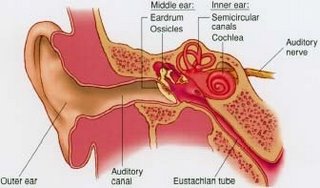THE DANGERS OF SOY PROTEINBy ROY B KUPSINEL, MD.
Soy contains two of substances, daidzein and genistein that are in the family of isoflavones. They bind zinc and other elements,interfere with the protein digestive enzyme trypsin, and antagonize estrogen. Estrogen antagonism may have long-term effects in the female with osteoporosis (weakening of the bone with loss of calcium), fibrocystic disease of the breast; in the male, gynecomastia (breast enlargement), balding, testicular wasting, erectile dysfunction, and sterility. In both sexes, obesity may become a major problem!
Soy also harbors phytic acid. Phytic acid interferes with the assimilation of calcium, magnesium, copper, iron and zinc. The deficiency of these minerals contributes to growth problems in children.
Soy contains phytoestrogens that contribute to infertility, breast cancer, hypothyroidism, and autoimmune disease of the thyroid in infants. The "phytos" increase the body's need for vitamin B 12 and vitamin D. The processing of soy produces toxic and carcinogenic substances. Two excitotoxins are produced -- glutamic acid and MSG. Excitotoxins stimulate the nervous system and play a major role in Attention Deficit Disorder (ADD) and Attention Deficit Hyperactivity Disorder (ADHD).
Soy contains high levels of aluminum, toxic to the nervous system and to the kidneys. Aluminum may be a major factor in Alzheimer's disease along with mercury. Aluminum is common in antiperspirant deodorants, including the Thai stones, aluminum cooking wear, baking soda, vaccinations and aluminum foil. Years ago in Guam, aluminum, as alum, was added to the water to clear its cloudiness. Many developed an illness similar to Multiple Sclerosis. I do not know the status today. Some major sources of mercury poisoning are amalgam fillings, vaccinations, large fish like tuna, and industrial pollution.Although touted as a great source of protein, it is not.
The Soy protein "isolate" that comes in the form a powder is a carcinogen with lysineoline and nitrosamines as the villains. I had my last soy protein drink last week. Soy is used as a form of infant formulas. It has ten times more aluminum than a milk based formula and 100 times more than in unprocessed milk.
Allergies to soy formulas are as common as with milk. Infants on soy formula consume the equivalent to five birth control tablets in a day. Add the adverse effect on the infant's thyroid plus and the increase risk of thyroid cancer. Infant males get a testicular surge and females experience early puberty and menarche. The child may experience immune disorders of the pituitary and thyroid glands.
When soy is fermented, the toxicity decreases. In addition to miso soup, there is a nutritional supplement enzyme, nattokinase. that is used for "thinning" the blood without the dangerous adverse effects of the drugs like coumadin.
-From David S. Klein, MD,
Examples of soy products:
1. Soy meal and soybean oil
2. Soy milk
3. Non-dairy creamer
4. Many "low fat" prepared foods.
5. Bread (soy meal is often mixed with the flour).
6. "Veggie burgers," some hamburger meats.
7. "Lecithin," short for soya lecithin (as opposed to the more expensive egg lecithin, used in Europe.



